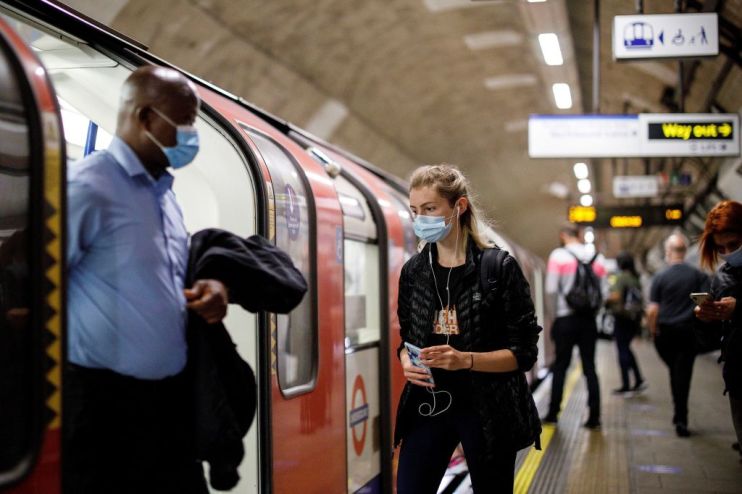Plan B to “inevitably impact” transport, stakeholders say

The new set of restrictions outlined yesterday by the government will “inevitably impact” Transport for London (TfL), as more Londoners will be required to work from home.
Nick Bowes, chief executive at think tank Centre for London, said that passenger numbers have already started dipping since the new variant emerged, “as people change their behaviour and cautious employers advise those who can to work from home.”
According to TfL data, bus demand went down 5.8 per cent, from 5.1 million travellers registered on Friday 26 November to 4.8 million a week later.
“Any tightening of restrictions will inevitably impact Transport for London’s fare income, further worsening the already large hole in TfL’s budget caused by the pandemic,” Bowes said.
“With so much uncertainty over how long the pandemic will continue, the government and TfL urgently need to agree an 18-month funding deal, to keep buses and tubes running beyond the expiry of the current funding package this Saturday.”
Even though the government’s bailout funding is set to expire in two days, TfL and the government are still at odds. Yesterday London mayor Sadiq Khan hit back at claims that he needs to “get real” about TfL’s funding crisis and said: “If TfL is forced to make significant cuts to services, it will risk our city’s economic recovery.”
Khan’s comments came after minister for London Paul Scully said there was “no basis” for Khan’s claims that several bus and Tube services could face the axe as a result of Transport for London’s (TfL) current funding crisis, City A.M. reported.
Not only will Plan B will impact the transport sector but it could have a negative effect on passengers and their finances, independent watchdog Transport Focus reported.
“Passengers will be wondering how this will impact on the bus, rail and tram journeys that they do have to make,” Transport Focus’s director David Sidebottom said. “If they’ve pre-bought a ticket, will they be able to exchange it? We look to transport operators to make sure that timely, accurate information is available both on and offline.”
Despite uncertainty, stakeholders such as the Railway Industry Association (RIA) have stated they will “continue to step to the plate.”
“As with past pandemic lockdowns and restrictions, the railway industry will continue to support the UK, its economy and connectivity, ” said RIA’s chief executive Darren Caplan.
“During the past two years, the rail supply sector has helped keep railway services running for both passengers and freight users, and supported the economy by delivering infrastructure projects and train upgrades, right across the UK.”
Railway companies, united under the banner of Rail Delivery Group, have also reassured passengers that “with enhanced cleaning and ventilation which refreshes the air in carriages every six minutes to nine minutes on on eight out of 10 of our trains, they can travel with confidence.”